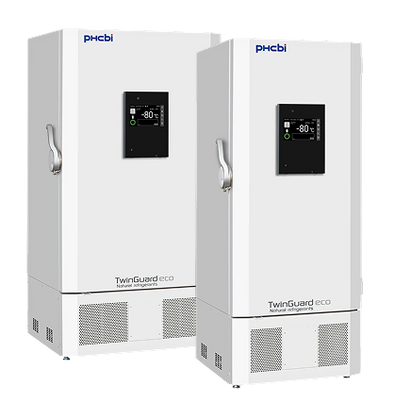Centrifuges
-
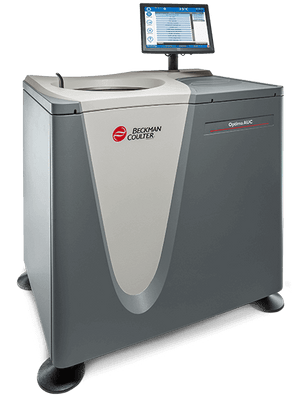
Beckman Coulter - Optima AUC - Analytical Ultracentrifuge
-
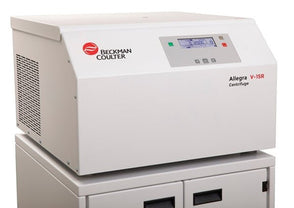
Beckman Coulter - C63383 - Allegra V-15R Benchtop Centrifuge, Refrigerated, 200V 50-60Hz, 208V 60Hz IVD-Deep-Well Microplate Package
-
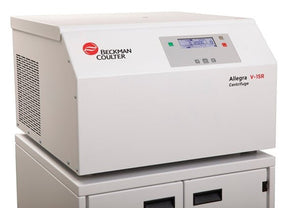
Beckman Coulter - C63435 - Allegra V-15R Benchtop Centrifuge, Refrigerated, 200V 50-60Hz, 208V 60Hz, IVD-Fixed Angle Package
-
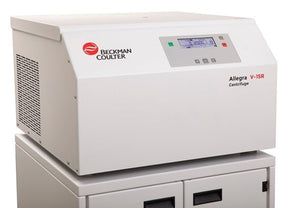
Beckman Coulter - C63377 - Allegra V-15R Benchtop Centrifuge, Refrigerated, 200V 50-60Hz, 208V 60Hz IVD - Microplate Package
-
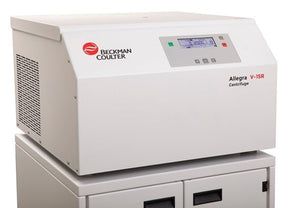
Beckman Coulter - C63447 - Allegra V-15R Benchtop Centrifuge, Refrigerated, 200V 50-60Hz, 208V 60Hz, IVD - BioSafe Package
-
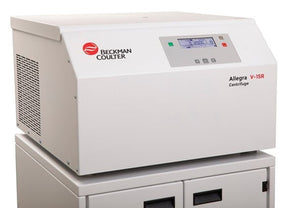
Beckman Coulter - C63389 - Allegra V-15R Benchtop Centrifuge, Refrigerated, 200V 50-60Hz, 208V 60Hz, IVD - Swinging Bucket Package
-

Beckman Coulter - C63441 - Allegra V-15R Benchtop Centrifuge, Refrigerated, 200V 50-60Hz, 208V 60Hz, IVD - Cell Culture Package
-
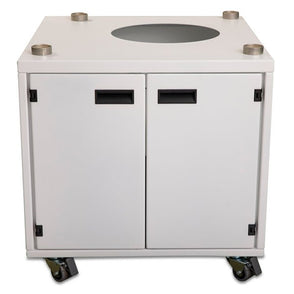
Beckman Coulter - C63177 - Allegra V-15R Centrifuge Cart
-

Beckman Coulter - A46474 - Microfuge 16 Centrifuge, Non-Refrigerated, 50-60Hz, 110-120V
-
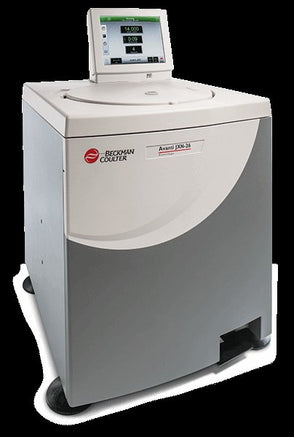
Beckman Coulter - B34183 - Avanti® JXN-26 Centrifuge, 200-240V, 50-60HZ, 24A
-

Beckman Coulter - Airfuge Air Driven Ultracentrifuge
-

Beckman Coulter - Avanti JXN-26 Centrifuge
-

Beckman Coulter - Avanti J-26S Centrifuge
-

Beckman Coulter - Avanti J-HC High Capacity Centrifuge
-

Beckman Coulter - Avanti J-E Series
-

Beckman Coulter - Allegra 64R Centrifuge
-

Beckman Coulter - Avanti JXN-30 Centrifuge
-

Beckman Coulter - Microfuge 20 Centrifuge
-

Beckman Coulter - Microfuge 16 Centrifuge
-

Beckman Coulter - Allegra X-30 Benchtop Centrifuge
Clinical and Medical Laboratory Centrifuges
What do centrifuges do?
Centrifuges are laboratory devices that use centrifugal force to separate mixtures based on density differences. By rapidly spinning samples, they create a force that causes denser particles to settle at the bottom while lighter particles remain at the top. This separation is essential for many laboratory processes, including clinical diagnostics, pharmaceutical development, and molecular biology.
How do centrifuges work?
Centrifuges work by rotating samples around a central axis at high speeds. The centrifugal force generated by this motion pushes denser components outward, causing them to settle at the tube’s base, while lighter elements stay closer to the center. The rate of rotation (measured in RPM) and the centrifugal force applied (measured in RCF or “g-force”) determine the effectiveness of the separation process.
What is a centrifuge used for?
Centrifuges are widely used across various fields for tasks such as blood plasma separation, DNA and RNA purification, protein isolation, and cell culture processing. In clinical labs, they help in separating blood components, while in research settings, they assist in purifying molecular samples or concentrating biological materials.
What are the different types of centrifuges?
There are several types of centrifuges, each suited for specific applications:
-
-
Microcentrifuges: Small, often used for small sample volumes (e.g., DNA/RNA).
-
Benchtop centrifuges: Compact and versatile, suitable for routine lab work.
-
Refrigerated centrifuges: Include a cooling feature to protect heat-sensitive samples.
-
High-speed and ultracentrifuges: Designed for applications requiring extremely high g-forces, often used in molecular biology.
-
Large-capacity centrifuges: Capable of processing large sample volumes, useful in blood banks or industrial applications
-
What is the difference between a refrigerated centrifuge and a regular centrifuge?
A refrigerated centrifuge has a cooling system that keeps samples at a specific temperature during centrifugation, which is critical for samples sensitive to heat generated by high-speed spinning. In contrast, a standard (or ventilated) centrifuge lacks temperature control, making it suitable for samples that do not degrade with heat.
Which is better: ventilated or refrigerated centrifuge?
The choice between a ventilated and a refrigerated centrifuge depends on the sample type and application. Refrigerated centrifuges are essential for handling temperature-sensitive samples (such as proteins and live cells), ensuring sample integrity. Ventilated centrifuges are ideal for routine tasks where cooling is unnecessary, and they are generally more affordable and simpler to operate.
Laboratory Equipment Company offers a variety of centrifuge models suited for both routine and specialized applications, including refrigerated, high-speed, and benchtop centrifuges, designed to meet the demands of modern laboratory environments.
Leading Laboratory Equipment Manufacturers
At Lab Equipment Co, we partner with the world’s top laboratory equipment manufacturers to bring you high-quality, reliable, and innovative solutions for your research, clinical, and industrial needs. Our carefully curated selection includes trusted brands known for precision, durability, and compliance with industry standards. Whether you need advanced analytical instruments, laboratory furniture, cold storage solutions, or biosafety equipment, our manufacturers deliver cutting-edge technology that enhances performance and efficiency.
Trusted Brands in Laboratory Equipment
We offer products from a wide range of leading manufacturers, ensuring that our customers have access to the latest advancements in laboratory and medical technology. Our partners specialize in:
- Biotechnology & Life Sciences Equipment for research and diagnostics
- Pharmaceutical & Clinical Lab Solutions including medical refrigerators and cleanroom equipment
- Environmental Chambers & Climate Control Systems for stability testing and controlled storage
- Biosafety & Containment Equipment for sterile environments and hazardous material handling
- General Laboratory Instruments & Furniture designed for efficiency and safety
Why Choose Our Manufacturer Partners?
When selecting laboratory equipment, quality, reliability, and compliance are essential. Our manufacturers are recognized for:
- Industry-leading innovation in research and laboratory technology
- Compliance with international standards such as FDA, CDC, ISO, and GMP
- Proven track records in biotechnology, healthcare, and industrial applications
- Sustainable and energy-efficient designs to meet modern laboratory demands
Find the Right Manufacturer for Your Lab
Whether you’re setting up a new lab, expanding capabilities, or upgrading equipment, our selection of trusted laboratory manufacturers ensures you get the best-in-class solutions tailored to your specific needs. Explore our manufacturer directory to find the right brand for your requirements, and let our experts assist you in making informed purchasing decisions.




















